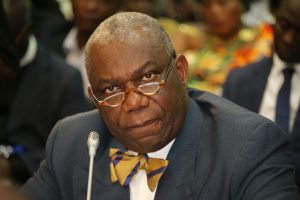Special topics

A nine-member committee tasked with addressing key issues in the implementation of the Gas Master Plan (GMP) has been inaugurated in Accra by the Minister of Energy, Boakye Agyarko.
The committee, made up of experts from the oil and gas industry, would be responsible for coordinating the implementation of specific recommendations of the plan, draft bills and regulations required for the management of the primary and secondary gas markets, review, where necessary, the gas master plan to align with the policy of government and to identify institutional overlaps and coordinate the institutional restructuring of the gas sub-sector.
The members include Deputy Minister of Energy, Dr Mohammed Amin, Ag. CEO, GNPC, Dr Kofi K. Sarpong, Ag. CEO, Petroleum Commission, Theophilous Ahwireng, Ag. CEO, NPA, Alhassan Tampuli, Ag. CEO, Ghana National Gas, Dr Ben Asante, Ag. CEO, BOST, Alfred Obeng, Ag. CEO, Tema Oil Refinery, Isaac Osei, Director, Petroleum, Ministry of Energy, Thomas Man and Deputy Director, Legal, Anita Lokko.
Minister for Energy, Mr Ayarko, who led the committee members to take their oath of office, said the vision of the government of President Akufo-Addo for the oil and gas sector hinges on three pillars.
“The three pillars include increasing oil and gas production by attracting upstream investment through the development of the enabling environment, increasing Ghanaian participation in the oil and gas industry and value addition along the oil and gas value chain. It is in respect of the third pillar that natural gas becomes so critical to us,” he said.
The sector minster further noted that the gas master plan provides a critical roadmap for the effective development of the nascent gas industry by addressing key issues along the entire gas value chain right from the upstream, which deals with exploration and production activities and addresses reserves potential and gas supply forecast.
He, however, said that the supply and demand and infrastructure plans alone cannot ensure a viable gas sector.
“We need the enabling environment and drivers to do that. This will include clear institutional and regulatory framework, appropriate financing structures, predictable gas pricing and tariff methodologies, private sector participation, as well as building indigenous human capacity to sustain the industry,” he said.
Mr. Agyarko said the master plan is only a document and will require periodic update and revision, hence the establishment of the committee to ensure that both the plans and enabling drivers, along the entire value chain, are implemented effectively and revised periodically for the development and sustainability of Ghana’s gas industry.
The committee shall meet on a monthly basis or at intervals to be decided by its chair, Dr Mohammed Amin, who is the Deputy Minister of Energy.